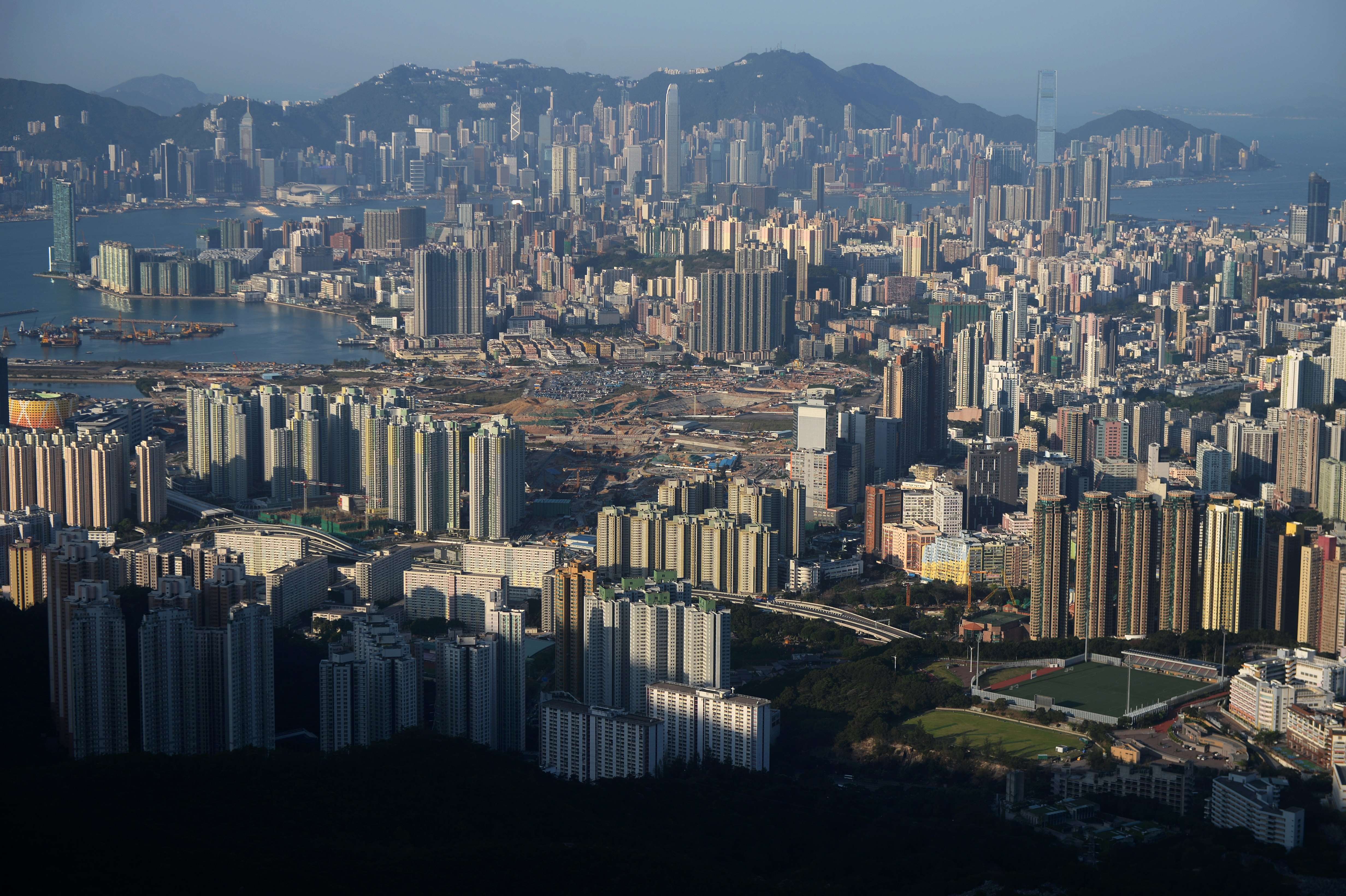
A little more than a decade ago, Hong Kong was the world's busiest port. Giant vessels competed to get into the city's berths, waiting to load and unload containers filled with goods manufactured just over the border in China's factory towns. Back then, Hong Kong still expected that its freewheeling commercial culture could change China for the better. And trading -- accounting for almost 25 percent of the city's economy -- seemed like just the industry to lead the way.
Now those expectations are colliding with reality. Last week, the local government reported that cargo flowing through Hong Kong dropped by 13.8 percent in 2015, capping a dismal year in which the city's port declined to the world's fifth-busiest, dropping behind one-time also-rans Shanghai and Shenzhen. It's likely to get worse: Last year, Deutsche Bank predicted that the volume of cargo moving through Hong Kong will decline by as much as 50 per cent over the next decade.
That's not just an economic blow. For a city that has long valued its independence and distinctiveness from mainland China, it also threatens something of an identity crisis.
Shipping has played a singular role in the modern history of Hong Kong, dating back to 1841 when British naval officers claimed the large, placid harbour with the idea that it would serve as a perfect gateway to China's internal markets. The port's period of greatest prosperity was the latter half of the 20th century, following China's economic opening to the outside world. Between 1972 and 2012, the volume of cargo moving through the port increased almost 18 times over, with the fastest growth between 1990 and 2000.
Two types of business propelled that growth -- and both are now under serious threat.
The first is direct shipping to and from South China. For decades, the port of Hong Kong offered better berths, technology and efficiency than Chinese ports across the border. Shippers preferred its predictable legal system to the mainland, where regulations and duty assessments could change on a whim.
In the past few years, however, China has been steadily eroding these advantages by building advanced port facilities of its own. During the second half of the 2000s, while the volume of cargo moving through Hong Kong grew by about 2 per cent annually, it grew by 20 percent in Shenzhen and 57 percent in Guangzhou. Hong Kong's share of South China's cargo business has declined from more than 70 per cent in 2001 to less than 40 per cent today.
The second crucial business is so-called trans-shipment. By Chinese law, foreign vessels can't carry cargo from one domestic port to another. But Hong Kong, considered an international port, is exempted from this restriction. Foreign ships can move freight from there to any number of mainland ports. One result is that a large industry of warehouses and other infrastructure has grown up in Hong Kong to support trans-shipment, which represents 72 percent of the port's business.
Now the Chinese government is under growing pressure from foreign cargo carriers and mainland ports to lift the restriction more broadly. When -- not if -- that happens, Hong Kong's position as a super port will only recede further. To some extent, that seems to be intentional: Last year, China's leading maritime policy institute predicted that, by 2030, "Hong Kong's position as an international shipping center will fall."
The local government is now entertaining proposals to upgrade and expand the port. But it's arguably too late. It can't change the fact that China's economy has expanded and modernised well past the stage where it needs a gateway. That aspect of Hong Kong's identity, like so many others, will likely have to accommodate itself to ever greater Chinese influence. - Bloomberg View